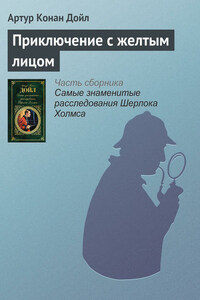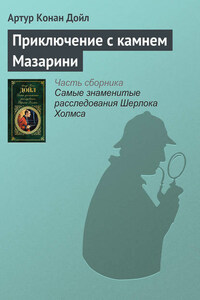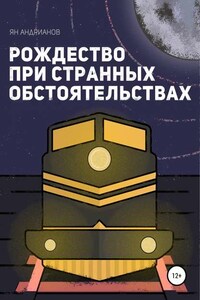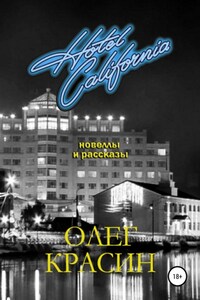The Mystery of Marie Rogêt
There are ideal series of events which run parallel with the real ones. They rarely coincide. Men and circumstances generally modify the ideal train of events, so that it seems imperfect, and its consequences are equally imperfect. Thus with the Reformation; instead of Protestantism came Lutheranism.
Novalis. Moral Ansichten.
Upon the original publication of “Marie Rogêt,” the footnotes now appended were considered unnecessary; but the lapse of several years since the tragedy upon which the tale is based, renders it expedient to give them, and also to say a few words in explanation of the general design. A young girl, Mary Cecilia Rogers, was murdered in the vicinity of New York; and although her death occasioned an intense and long-enduring excitement, the mystery attending it had remained unsolved at the period when the present paper was written and published (November, 1842). Herein, under pretence of relating the fate of a Parisian grisette, the author has followed, in minute detail, the essential, while merely paralleling the inessential, facts of the real murder of Mary Rogers. Thus all argument upon the fiction is applicable to the truth; and the investigation of the truth was the object.
The Mystery of Marie Rogêt was composed at a distance from the scene of the atrocity, and with no other means of investigation than the newspapers afforded. Thus much escaped the writer of which he could have availed himself had he been upon the spot and visited the localities. It may not be improper to record, nevertheless, that the confessions of two persons (one of them the Madame Deluc of the narrative), made, at different periods, long subsequent to the publication, confirmed, in full, not only the general conclusion, but absolutely all the chief hypothetical details by which that conclusion was attained.
There are few persons, even among the calmest thinkers, who have not occasionally been startled into a vague yet thrilling half-credence in the supernatural, by coincidences of so seemingly marvellous a character that, as mere coincidences, the intellect has been unable to receive them. Such sentiments – for the half-credences of which I speak have never the full force of thought—such sentiments are seldom thoroughly stifled unless by reference to the doctrine of chance, or, as it is technically termed, the Calculus of Probabilities. Now this Calculus is, in its essence, purely mathematical; and thus we have the anomaly of the most rigidly exact in science applied to the shadow and spirituality of the most intangible in speculation.
The extraordinary details which I am now called upon to make public, will be found to form, as regards sequence of time, the primary branch of a series of scarcely intelligible coincidences, whose secondary or concluding branch will be recognized by all readers in the late murder of Mary Cecila Rogers, at New York.
When, in an article entitled “The Murders in the Rue Morgue,” I endeavored, about a year ago, to depict some very remarkable features in the mental character of my friend, the Chevalier C. Auguste Dupin, it did not occur to me that I should ever resume the subject. This depicting of character constituted my design; and this design was thoroughly fulfilled in the wild train of circumstances brought to instance Dupin’s idiosyncrasy. I might have adduced other examples, but I should have proven no more. Late events, however, in their surprising development, have startled me into some farther details, which will carry with them the air of extorted confession. Hearing what I have lately heard, it would be indeed strange should I remain silent in regard to what I both heard and saw so long ago.
Upon the winding up of the tragedy involved in the deaths of Madame L’Espanaye and her daughter, the Chevalier dismissed the affair at once from his attention, and relapsed into his old habits of moody reverie. Prone, at all times, to abstraction, I readily fell in with his humor; and, continuing to occupy our chambers in the Faubourg Saint Germain, we gave the Future to the winds, and slumbered tranquilly in the Present, weaving the dull world around us into dreams.
But these dreams were not altogether uninterrupted. It may readily be supposed that the part played by my friend, in the drama at the Rue Morgue, had not failed of its impression upon the fancies of the Parisian police. With its emissaries, the name of Dupin had grown into a household word. The simple character of those inductions by which he had disentangled the mystery never having been explained even to the Prefect, or to any other individual than myself, of course it is not surprising that the affair was regarded as little less than miraculous, or that the Chevalier’s analytical abilities acquired for him the credit of intuition. His frankness would have led him to disabuse every inquirer of such prejudice; but his indolent humor forbade all farther agitation of a topic whose interest to himself had long ceased. It thus happened that he found himself the cynosure of the political eyes; and the cases were not few in which attempt was made to engage his services at the Prefecture. One of the most remarkable instances was that of the murder of a young girl named Marie Rogêt.
This event occurred about two years after the atrocity in the Rue Morgue. Marie, whose Christian and family name will at once arrest attention from their resemblance to those of the unfortunate “cigargirl,” was the only daughter of the widow Estelle Rogêt. The father had died during the child’s infancy, and from the period of his death, until within eighteen months before the assassination which forms the subject of our narrative, the mother and daughter had dwelt together in the Rue Pavée Saint Andrée;[1] Madame there keeping a pension, assisted by Marie. Affairs went on thus until the latter had attained her twenty-second year, when her great beauty attracted the notice of a perfumer, who occupied one of the shops in the basement of the Palais Royal, and whose custom lay chiefly among the desperate adventurers infesting that neighborhood. Monsieur Le Blanc[2] was not unaware of the advantages to be derived from the attendance of the fair Marie in his perfumery; and his liberal proposals were accepted eagerly by the girl, although with somewhat more of hesitation by Madame.
The anticipations of the shopkeeper were realized, and his rooms soon became notorious through the charms of the sprightly grisette. She had been in his employ about a year, when her admirers were thrown info confusion by her sudden disappearance from the shop. Monsieur Le Blanc was unable to account for her absence, and Madame Rogêt was distracted with anxiety and terror. The public papers immediately took up the theme, and the police were upon the point of making serious investigations, when, one fine morning, after the lapse of a week, Marie, in good health, but with a somewhat saddened air, made her re-appearance at her usual counter in the perfumery. All inquiry, except that of a private character, was of course immediately hushed. Monsieur Le Blanc professed total ignorance, as before. Marie, with Madame, replied to all questions, that the last week had been spent at the house of a relation in the country. Thus the affair died away, and was generally forgotten; for the girl, ostensibly to relieve herself from the impertinence of curiosity, soon bade a final adieu to the perfumer, and sought the shelter of her mother’s residence in the Rue Pavée Saint Andrée.












